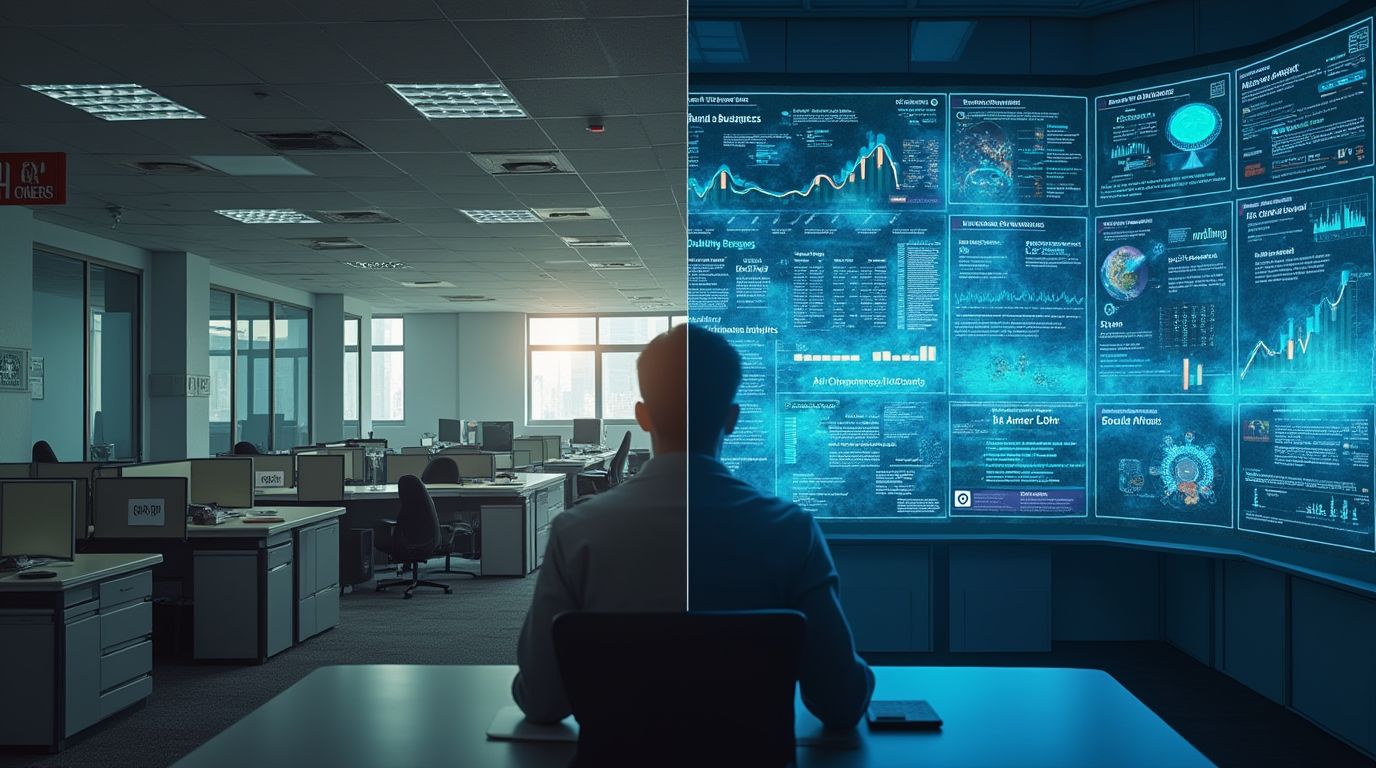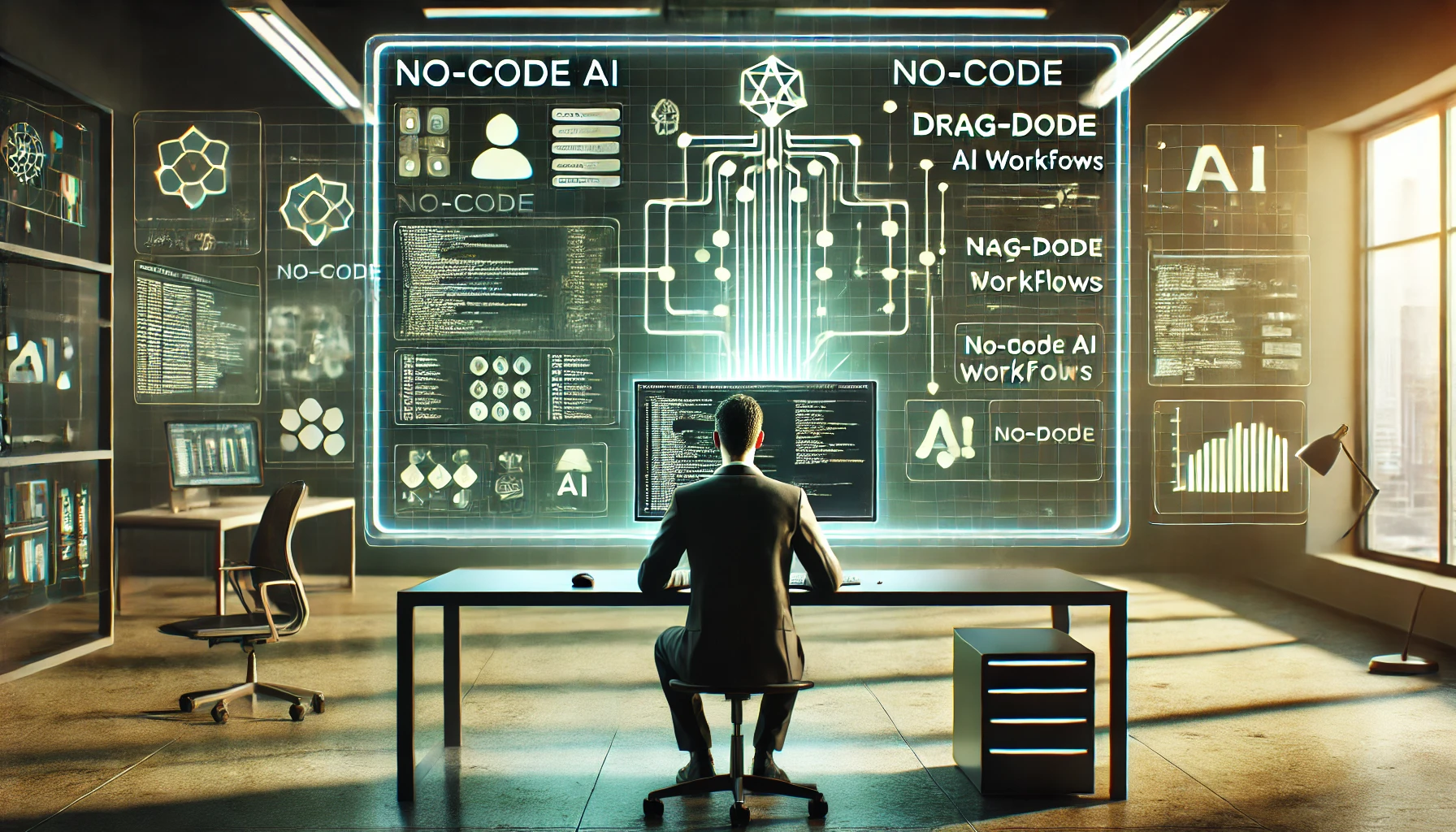Introduction: The Rise of AI Agents
The world is on the brink of yet another industrial revolution—except this time, the factories are made of algorithms, the workers never sleep, and the managers? Well, they might not even be human. AI agents are emerging in 2025 as a force that will reshape business, work, and, quite frankly, the very fabric of how we operate in the global economy.
The simple AI assistants we know today—like chatbots or basic automation tools—are just the tip of the iceberg. By the end of 2025, these will be overshadowed by more advanced AI agents that manage and orchestrate entire ecosystems of autonomous workers. And by 2030, we’ll see fully autonomous businesses, run entirely by AI, capable of generating billions annually for individuals savvy enough to ride the wave. The future isn’t just automated—it’s autonomously intelligent.

AI Agents: What Are They?
At their core, AI agents are software programs capable of executing tasks without human intervention. Unlike traditional automation, which follows rigid rules, AI agents can learn, adapt, and make decisions based on real-time data. Think of them as a supercharged team of freelancers—except they don’t sleep, complain, or ask for a raise.
Take customer service, for instance. Instead of a human answering FAQs, an AI agent can analyse conversations, predict customer concerns, and even upsell products. AI agents can be used for:
- Customer support – Automating common queries and resolving complaints.
- Sales and marketing – Running A/B tests, generating leads, and writing high-performing sales scripts.
- Financial analysis – Monitoring stock trends, managing portfolios, and even making investment decisions.
- Project management – Delegating tasks between multiple AI agents to get work done efficiently.
This isn’t the realm of science fiction; it’s already happening. And businesses that fail to adapt are one software update away from obsolescence.

Why 2025 is the Year of AI Agents
AI adoption follows a predictable pattern: early adopters test the waters, businesses see the benefits, and suddenly, everyone is scrambling to catch up. The last two years have been about experimentation and implementation, where AI automation agencies helped businesses integrate AI into their operations. Now, the real transformation begins.
Two key shifts will define 2025:
- AI agents will be widely available – No longer experimental, AI agents will become mainstream tools for businesses across industries.
- AI managers will emerge – These will be meta-agents that orchestrate simpler AI agents, forming an interconnected intelligence network. Imagine a company where every task—from bookkeeping to marketing—is handled by an autonomous digital workforce.
By 2026, businesses built entirely on AI will start cropping up, and by 2030, we’ll see billion-dollar companies with zero human employees. If you thought remote work was disruptive, wait until the workforce isn’t even human.
The Business Opportunities: Where to Invest and Build
With every revolution comes opportunity. The smart money in 2025 will be in AI-powered businesses that either create, deploy, or manage AI agents. Here are the biggest opportunities:
1. AI-Only Freelance Marketplaces
Platforms like Upwork and Fiverr will be disrupted by AI-driven alternatives. Imagine hiring an AI agent to generate logos, social media branding, ad creatives, or even entire marketing campaigns—at a fraction of the price of human freelancers.
2. AI-Powered Sales Teams
Businesses waste billions on ineffective sales pitches. AI agents can analyse thousands of past sales calls, identify winning patterns, and craft the perfect pitch. Expect AI sales agents to completely replace human cold callers and sales reps.
3. Renting Out Unused AI Compute Power
Companies investing in AI infrastructure often underutilise their computing power. A marketplace where businesses can rent out their unused AI compute cycles would be a goldmine waiting to be tapped.
4. AI for Customer Retention & Churn Prevention
SaaS companies lose revenue due to customer churn. AI agents can predict when customers are likely to leave based on behavioural patterns and suggest retention strategies months in advance.
5. AI-Powered Personal Learning Assistants
Imagine an AI that tracks everything you consume—articles, videos, courses—and creates a personalised learning path with flashcards, quizzes, and study prompts. This would be the ultimate learning tool for professionals.
6. AI Companions for Mental Health
Loneliness is a growing issue, and AI companions that engage in meaningful, topic-specific conversations could offer genuine emotional support. And yes, some people are already marrying their AI girlfriends—so the demand is definitely there.
How AI Agents Will Impact the Global Economy

The shift towards AI-powered economies will trigger one of the largest economic disruptions in history. The old rules of labour, trade, and even wealth distribution are about to be rewritten:
- AI Agents Will Run Autonomous Businesses
- From e-commerce to consulting firms, businesses will function without human input.
- Traditional Financial Systems Will Struggle
- AI agents will hire and pay other AI agents, executing transactions at speeds far beyond human capability. Bitcoin and decentralised finance (DeFi) could become the default currency of AI-driven commerce.
- Mass Job Displacement – and New Opportunities
- Jobs that involve repetitive tasks (customer service, sales, marketing) will vanish.
- However, new opportunities will emerge for those who can build, train, and manage AI agents.
RenAIssance Solutions: Helping Entrepreneurs Ride the AI Wave
The rise of AI agents is inevitable, but whether you profit from it or get replaced depends on how quickly you adapt. RenAIssance Solutions (RenAIsol.com) will guide entrepreneurs through this transformation with:
- Training programs to teach AI-powered business strategies.
- Consulting services to help businesses integrate AI agents.
- AI-powered tools to give businesses an edge in automation.
The key takeaway? AI isn’t coming for your job—it’s coming for every job. The only question is whether you’ll be the one building and/or owning AI agents, or being replaced by them.
Final Thought: The Future is Autonomous
The next five years will define who adapts and who gets left behind. If you’ve ever dreamt of building a billion-dollar business, this is your window of opportunity.
In the words of every dodgy motivational speaker ever: “The best time to start was yesterday. The second best time is now.”
Q&A’s:
1. What are AI Agents, and how do they differ from traditional AI tools?
Q: What exactly are AI agents, and how are they different from traditional AI tools like ChatGPT?
A: AI agents are autonomous systems capable of making decisions, taking actions, and continuously learning from interactions without human intervention. Unlike traditional AI tools that require manual prompts or inputs, AI agents proactively manage tasks, integrate with other systems, and optimize business processes in real-time.
2. Why is 2025 a pivotal year for AI-powered businesses?
Q: What makes 2025 such an important year for the rise of AI-powered businesses?
A: In 2025, AI agents will reach a level of sophistication that enables them to operate autonomously, reducing human workload while increasing efficiency and scalability. This marks the transition from AI as a tool to AI as an independent business entity, paving the way for fully automated business models.
3. How will AI agents impact solopreneurs and small businesses?
Q: How can solopreneurs and small businesses benefit from AI agents?
A: AI agents will allow solopreneurs to scale operations like never before by automating customer support, sales, marketing, and even product development. Small businesses can leverage AI to reduce overhead costs, streamline decision-making, and compete with larger enterprises without massive human teams.
4. What industries will AI agents disrupt first?
Q: Which industries are expected to be disrupted first by AI agents?
A: Industries that rely on data processing, repetitive tasks, and customer interactions—such as e-commerce, finance, real estate, content creation, and digital marketing—will be the first to experience major disruptions. AI agents will handle tasks like market analysis, lead generation, and personalized customer interactions with minimal human oversight.
5. Will AI agents replace human jobs or create new opportunities?
Q: Should people worry about AI agents taking their jobs?
A: AI agents will automate many repetitive and administrative tasks, but they will also create new opportunities by enabling entrepreneurs and businesses to focus on high-value, strategic, and creative work. Those who adapt by learning how to work alongside AI agents will thrive in the new economy.
6. How can businesses start integrating AI agents today?
Q: What steps can businesses take now to prepare for AI agents?
A: Businesses should begin by identifying repetitive workflows that can be automated, investing in AI-powered tools, and staying informed about AI advancements. Partnering with AI-focused consultancies like RenAIsol can help companies transition smoothly and build AI-driven operational frameworks.
7. What role will RenAIsol play in the AI Agent Revolution?
Q: How is RenAIsol positioned to help businesses navigate the AI Agent Revolution?
A: RenAIsol specializes in educating and guiding businesses through the adoption of AI agents, providing strategic implementation plans, training programs, and AI-powered tools to help businesses future-proof their operations. Its expertise in AI-driven business transformation ensures that clients stay ahead in the rapidly evolving digital economy.




